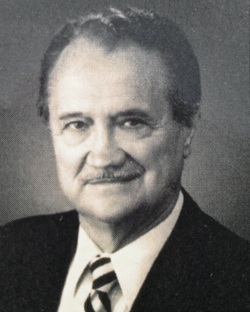
I have many personal memories of this great man. I remember when I was a graduate student at Purdue, he came into my lab with a stopwatch. We were having a disagreement on a particular point of a study I had underway. “OK, Johnny, you got eight minutes to make your case.” So I did. At exactly eight minutes, he said, “My turn” and so the debate continued for an hour or so. He saw my side and then gave me his full support – but what an exhilarating hour we had.
During the AT&T studies in the 1950s and 1960s, Rychlak directed over 350 interviews in which managers talked about their lives for several hours. Rychlak identified nine major life themes, predominant patterns of meaning that emerged in conversation, patterns that reflected priorities and interests. Here are those themes in my words:
- Occupational. People for whom work was the true center of their lives. They talked mainly about their work and getting ahead.
- Financial-acquisitive: People occupied with accumulating wealth, property and other possessions. People with this theme desired symbols of their success.
- Locale-residential: For some, where they lived was the key. They liked their city, their community, their part of the state. Living where they lived was what they wanted most.
- Service: People heavily involved in community activities (of a nonreligious nature), or serving the nation in the National Guard or Reserves.
- Ego-functional: Those mostly interested in self-development, such as pursuing more education, reading, physical activity, health.
- Religious-humanism: People engaged with their church, synagogue, mosque, or expressing humanistic values.
- Recreational-social: For some, enjoying their hobbies, going to movies, or socializing occupied their time. Work was a means to an end.
- Marital-familial: People talking mostly about their spouse, children, in-laws.
- Parental-familial: People talking mostly about their parents, siblings, old friends.
Image of Joseph Rychlak from the 1990s. He will be missed. Image used with permission.
Howard, A., & Bray, D. W. (1988). Managerial lives in transition: Advancing age and changing times. New York: Guilford Press.
Rychlak, J. F. (1982). Personality and life-style of young male managers: A logical learning theory analysis. San Diego, CA: Academic Press.
 RSS Feed
RSS Feed